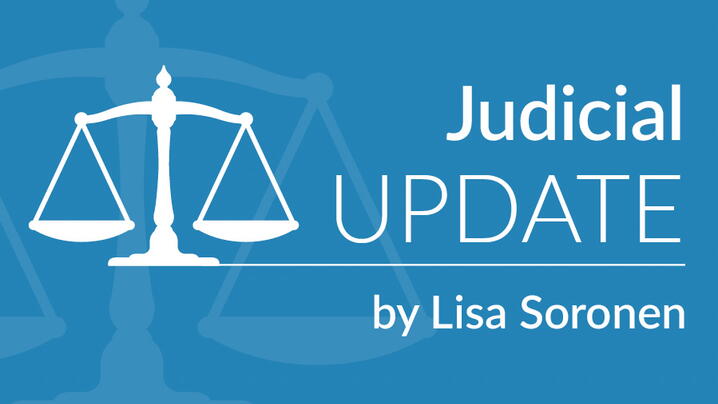
by Lisa Soronen, executive director, State and Local Legal Center
The issue in Timbs v. Indiana is whether the Eighth Amendment Excessive Fines Clause applies to the states. The State and Local Legal Center (SLLC) Supreme Court amicus brief rejects the argument that the Fourteenth Amendment incorporates all rights included in the first eight amendments. It also argues that the forfeiture, in this case, isn’t unconstitutionally excessive.
Indiana sought to forfeit Tyson Timbs’ Land Rover, which he used to buy and transport heroin. The trial court accepted Timbs’ challenge that the fine would be excessive per the Eighth Amendment, which says that “excessive bail shall not be required, nor excessive fines imposed.” The court observed that the value of the vehicle well exceeded the maximum statutory fine ($10,000) for the felony that Timbs plead guilty to.
The Indiana Supreme Court decided not to apply the Excessive Fines Clause to Indiana because the U.S. Supreme Court had yet to apply it. After the passage of the Fourteenth Amendment, the U.S. Supreme Court began to “apply various provisions of the Bill of Rights to the States through the doctrine of selective incorporation.” But the U.S. Supreme Court has never held whether the Eighth Amendment’s Excessive Fines Clause is enforceable against the states.
Interestingly, in Cooper Industries v. Leatherman Tool Group (2001), the court stated in dicta (language in the opinion not essential to the holding of the case) that the Excessive Fines Clause does apply to the states. But in McDonald v. Chicago (2010), the court stated, again in dicta and without mentioning Cooper, it has never decided whether the Excessive Fines Clause applies to the states.
The SLLC amicus brief argues that the historical evidence that the Fourteenth Amendment was originally understood to incorporate the first eight amendments, as Timbs argues, is “deeply unsatisfactory.” The brief also argues that the forfeiture, in this case, wasn’t excessive. First, Timb’s use of the Land Rover was integral in his heroin operation. Second, depriving Timbs of his Land Rover is roughly proportional. And finally, transporting heroin is a serious offense.
Lawrence Rosenthal, Chapman University, Fowler School of Law, wrote the SLLC amicus brief, which these organizations joined: National Association of Counties, National League of Cities, United States Conference of Mayors, International City/County Management Association, and International Municipal Lawyers Association.
Related Resources
Supreme Court Rules Invalidated Conviction Means Automatic Refund of Court Fees. This 2017 blog post focuses on the question if a defendant has to prove their innocence to get a refund of court fees.
Supreme Court Rules Warrant Needed to Search Car on Curtilage. This 2018 blog post looks at a Fourth Amendment case, involving whether the police need a search warrant for a car that is parked on the curtilage of someone's private property.
State and Local Government Authority Under the Double Jeopardy Clause on the Line in SCOTUS Case. Another 2018 blog post details a case about the double jeopardy. The specific issue is if someone can be tried in both a state court and a federal court for the same crime.
New, Reduced Membership Dues
A new, reduced dues rate is available for CAOs/ACAOs, along with additional discounts for those in smaller communities, has been implemented. Learn more and be sure to join or renew today!
